When learning how to do something new, learning what you should avoid is often just as important as learning what you should pursue. It’s good to pay attention to those “7 Blunders” articles. Learning to write fiction is no different in this respect.
 However, as with most disciplines, a lot of the advice you find is ultimately just someone’s opinion. Often, it’s an experienced, learned opinion no doubt, but an opinion nonetheless. And it’s an opinion that some other learned person contests.
However, as with most disciplines, a lot of the advice you find is ultimately just someone’s opinion. Often, it’s an experienced, learned opinion no doubt, but an opinion nonetheless. And it’s an opinion that some other learned person contests.
Sorting out what you should and should not do in these circumstances can be a challenge. You could choose to adopt the opinion of the person you respect the most. Or you could look deep inside yourself and choose the opinion that feels right to you. I usually go with the second approach.
Structured or Intuitive?
I recently read a couple of articles that talked about structured writing. This is where you plan out your plot in advance, create an outline for how the story will flow, and turn your novel writing into a fill-in-the-blanks exercise. I’ve done this a lot in my non-fiction writing. The authors who wrote these opinions were convinced that your novel will turn out to be a mess if you don’t outline. “Leave free-writing to the experts,” they say.
Other opinions I’ve read say that the most important thing is to keep writing. So-called “intuitive” writing involves starting with a scene and developing the story forward and backward from that scene. The plot structure forms like a crystal around the scene that set the story in motion.
Writers Write
When I set out to write my novel, I knew I had a lot to learn about fiction writing. I had to suppress my natural tendency to research the subject exhaustively before starting. That’s the road to analysis paralysis. I was sure, and I’m convinced of this now more than ever, that reading is not as good as writing for developing your writing skills. Learn by doing, and all that. Sure, reading about technique and reading the work of other authors in your genre helps you improve, and I will continue to do that, but the most common theme in all writing circles is “writers write.”
So here I am, boldly writing my novel without the safety net of an outline. But I am writing.
Over and over, I see authors post on the writing blogs about how some article inspired them and they swear they will dust off their manuscript and get back to their writing. Will they really? What made them stop writing in the first place? I hope it wasn’t because they got hung up on doing an outline!
Perhaps genre plays a role in how structured you are in your writing. I’m writing fantasy, so I not only have characters to develop and a plot to devise, but I have a world to build. If I had already fully developed that world, perhaps I could outline a story that takes place within it, but I’m not there yet. Maybe I can do that by the second or third book of the series. How’s that for optimism?
I could have tried to do all of the world-building up front, but certain aspects (particularly magic) needed some feet-on-the-ground experience to fully envision how it would work. Actually surrounding myself with the world I’m creating is helping me to develop it.
Uh huh. How’s that working out for you?
So far, so good. The first scene I set out to write really got things going as I hoped it would. Here’s how it went…
I started thinking about what I would write a couple of days before I wrote it. I knew several things about what I wanted in my overall story, based on ideas from my past and the story elements that I like and dislike about other fantasy novels:
- I’m thoroughly bored with the reluctant hero who has to save the entire world or even the universe from Evil Destruction. I call this “end of the world syndrome,” and fantasy is rife with it. I don’t believe a good story needs that level of hysteria.
- I enjoy reading detective novels nearly as much as I like fantasy, so I thought it would be cool to have my main character to be a private detective of sorts, set in a fantasy world. To that end, I gave him a law enforcement background (one-time Captain of the City Guard).
- I want the stories to be similar to detective stories, where there’s a serious quest involved, but the main character doesn’t have to kill a god or something to complete said quest. I believe that personal crises, even in a fantasy setting, have enough drama to engage a reader.
- I want the story to have a mature perspective. The main character is no hot-headed teenager blundering his way through one disaster after another while fighting his Unavoidable Destiny. I’ll leave that kind of writing to the Young Adult fiction authors.
- I knew that magic would be life-force-based somehow, similar in concept to The Force from Star Wars, but without the mystical and religious overtones. I wanted magic to be something almost scientific, in that it could be studied, learned, and manipulated by those with natural talent.
- I also knew that magic would not be common. Not everyone can work with it, and those who can’t are wary of those who can, much as you might react to a shady-looking character who walks into a grocery store with a firearm plainly holstered on his hip.
- From my Dungeons and Dragons days back in the late 70’s, I had this idea for something called The Archives, which is like a Smithsonian Institution of sorts for collecting magical knowledge and artifacts. That organization will play a big role in virtually all of the books I set in this world.
There’s more, but that gives you enough background to see where I was coming from as I thought through the “wire frame” of my first scene. In the first scene, the main character meets with a minor character who has a job for him to do. As soon as I started to write, questions came up, and I tried to answer them as they did:
- Where do they meet? They meet in the serving room of an inn.
- What is the nature of the quest? The minor character wants the main character to find someone for him.
- Why can’t he do it himself? Because the minor character and his partner have stolen something and are on the run from a group of people who are hunting them.
- How did they get separated? The hunters ambushed them and the thieves got split up when they ran.
- What did they steal that would cause such a hunt? A magical artifact of some importance.
- Why did they take it? Someone hired them to steal it and bring it to him.
- What does the artifact do? Not important just yet.
- Why would the main character take this job, if the minor character is a thief? Because the minor character is asking for help with finding his partner, not with finding the item.
- What adds spice to the scene? At the end of the scene, the thief leaves through the back of the inn, but only to find that the hunters have caught up with him. He is taken captive.
Again, there were actually a lot more questions and answers than this, but you see how the process worked. Every answer unfolded new questions, and answering those questions revealed a new element of the story as well as the workings of the fantasy world itself. I took tons of notes outside the writing of the scene itself as I invented new story and world elements.
Writing this way was, and continues to be, a lot of fun. I have no idea how many of the scenes I’m writing will end up in the final manuscript intact, but it doesn’t really matter. The fact is that the world is coming into focus and the story is developing nicely, so I’m happy with my progress.
Winging It
So now you know the truth: I’m winging it.
I may be making a mistake. The “mess” I make of my first draft will tell the tale, so to speak.
But here’s the thing: I’ll have a first draft. I won’t have given up on my writing because I got frustrated trying to create an outline.


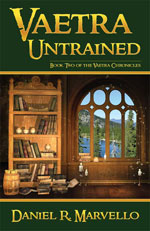
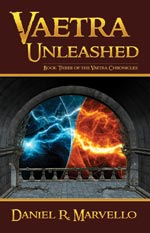
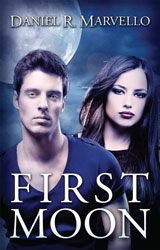

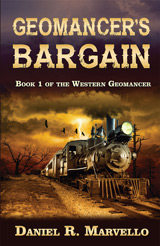
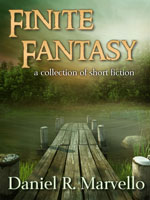
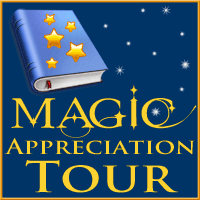

You Can DO IT there is nothing like flying by the seat of your pants . People who dont like hang gliding will never do it.Those who do however will observe and rember the elation on their or the pilots faces as inspiration for next time . Dont write for every one write for those of like mind!
Thanks, Spanky. I agree that you have to write for a specific audience. As they say, if you try to write for everyone, you end up writing for no one.